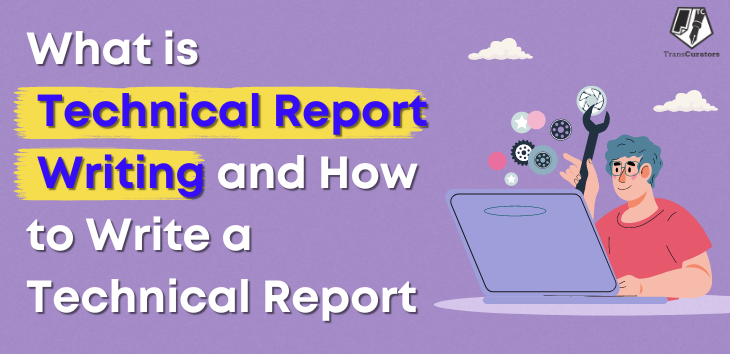
Content marketing is an essential aspect of digital marketing. It entails creating and sharing valuable, relevant content to attract and engage a target audience. The ultimate goal is to generate profitable consumer actions. Unlike traditional marketing, which focuses on pitching products, content marketing aims to provide customers with helpful information to help them solve problems or satisfy their needs. In this guide, we will gain insights about content marketing in digital marketing with its key components.
The Importance of Content Marketing in Digital Marketing
Content marketing is essential in digital marketing because it allows businesses to engage with their target audience meaningfully. When you create quality content that educates, entertains, or solves an issue for your target audience, you establish trust and credibility. This trust is the foundation for long-term relationships with your customers. In contrast to traditional advertising, which disrupts and promotes products, content marketing delivers information that consumers are actively looking for. Your website and social media platforms can attract visitors if you cater to their demands and interests. Since they are already interested in what you have to offer, this organic traffic has a higher chance of turning into leads and, eventually, customers. Additionally, social media marketing and SEO (Search Engine Optimisation) are two more digital advertising strategies that content marketing fosters. Your search engine rankings can be raised with the help of quality content that is optimised for relevant search terms called keywords, which makes it simpler for potential customers to find you online. Furthermore, content marketing lets you establish your authority and expertise in your field. When you constantly offer valuable insights and solutions through blogs, articles, videos, and other media, you position your brand as a thought leader. This can distinguish you apart from competitors and attract a loyal following.
Key Components of Content Marketing in Digital Marketing
1. Understanding Your Audience
Understanding your audience is essential for successful content marketing. This entails identifying your target clients’ requirements, challenges, and preferences. By creating buyer personas or thorough profiles of your ideal customers, you can tailor your content to their needs. This insight helps create content that addresses their concerns and offers answers, thus increasing the effect of your marketing initiatives.
2. Content Strategy Development
A well-defined content strategy will direct your content marketing efforts. It explains the objectives you want to accomplish with content marketing, such as raising brand recognition, generating leads, or increasing sales. Your strategy should include the types of content you will develop (blogs, videos, infographics, etc.), what topics and themes you will cover, and what marketing channels you will use (website, social media, email).
3. Content Creation
Content creation is where the magic happens. It involves creating high-quality content that informs, entertains, or inspires your target audience. The goal is to offer value through helpful articles, engaging videos, appealing images, and entertaining podcasts. Each piece of content should be crafted with your audience in mind, addressing their interests and requirements and being consistent with your brand voice and objectives.
4. Content Distribution
Creating fantastic content is only half the battle; you also need a plan for efficiently distributing it. To reach your target audience, you can use channels such as your website, social networking platforms (Facebook, Twitter, LinkedIn, and so on), email newsletters, and third-party platforms. Organic reach through SEO (Search Engine Optimisation), paid advertising, influencer relationships, and collaborations with other companies or content providers are all possible distribution options.
5. Engagement and Interaction
Content marketing is more than just delivering messages; it’s also about connecting with your audience. Encourage engagement by reacting to comments on your blog pieces, social media postings, or videos. Engage in discussion, ask questions, and seek feedback. This interaction promotes relationships, trust, and loyalty among your audience.
6. Performance Measurement and Optimization
To ensure the effectiveness of your content marketing initiatives, monitor their performance regularly. Use analytics tools to monitor critical metrics, including website traffic, engagement, conversions, and ROI. Evaluate the data to determine what is working well and what requires improvement. Adjust your content strategy appropriately, optimising your content based on analytical insights.
7. Consistency and Adaptability
Consistency is critical in content marketing. Regularly posting high-quality content engages your audience and enhances your brand’s existence. However, be adaptable—keep up with industry developments, consumer behaviour changes, and search engine algorithm revisions. Adjust your content approach to stay current and continue to reach your audience effectively.
Conclusion
In conclusion, content marketing is an essential aspect of digital marketing that focuses on developing and delivering valuable, relevant, and consistent material to attract and engage a specific audience. Content marketing promotes trust, authority, and long-term connections with potential consumers by focusing on the audience’s needs and interests. It includes various types, including blog articles, videos, social media updates, and more, all to encourage profitable customer actions. As the digital landscape evolves, good content marketing is critical for businesses aiming to differentiate themselves and achieve long-term success in a competitive market.
Frequently Asked Question
A1.Common types include blog posts, social media updates, videos, infographics, e-books, whitepapers, and podcasts.
A2. Content marketing focuses on providing value and building relationships, whereas conventional advertising often aims for immediate sales through direct promotion.
A3. High-quality content attracts backlinks and improves search engine rankings, driving more organic traffic to your site.
A4. Metrics like website traffic, engagement rates, lead generation, and conversion rates help measure content marketing success.
A5. Content marketing can benefit any business by providing valuable information tailored to their target audience’s needs.



